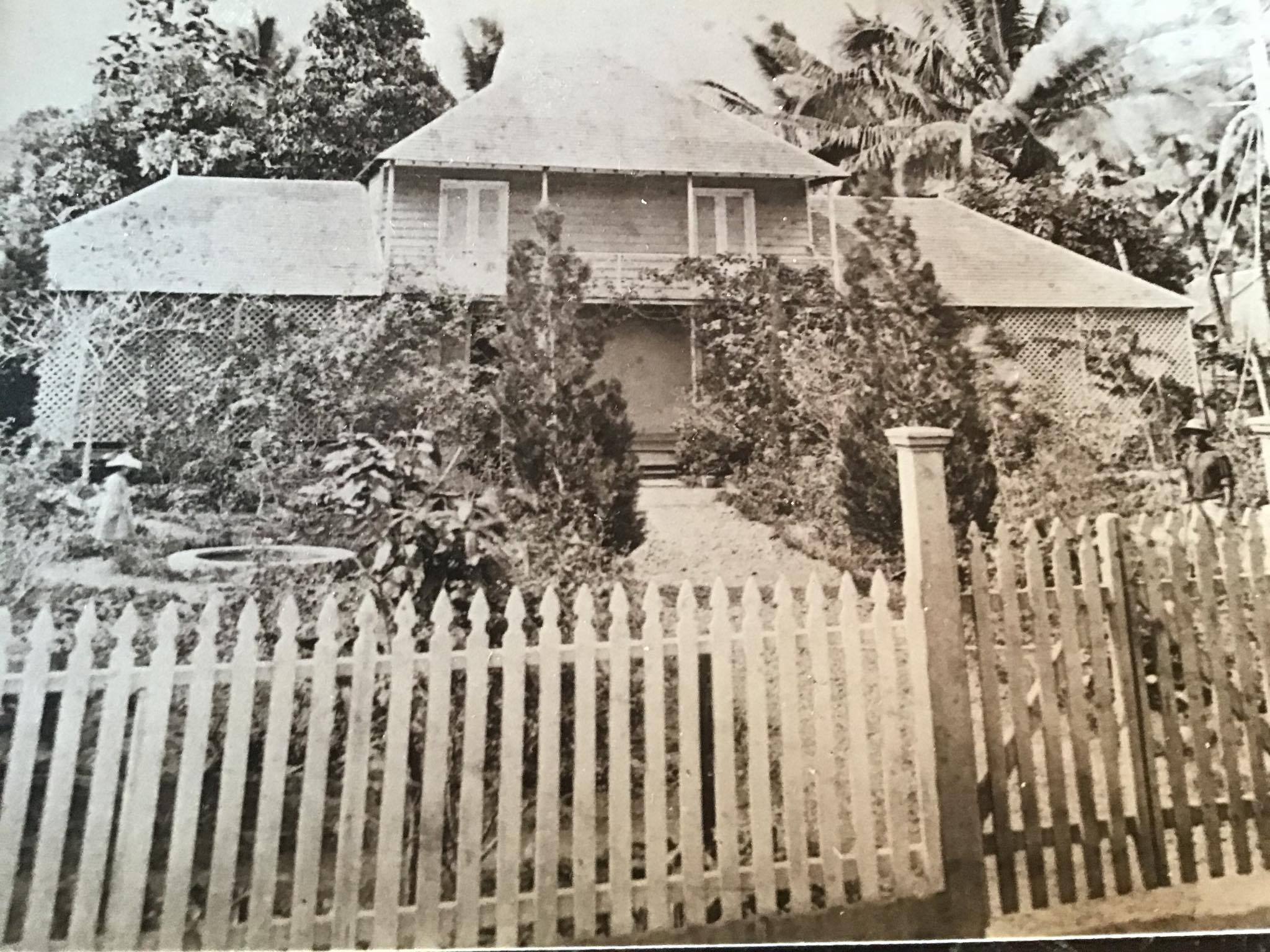Daniel Blackett was born in Nova Scotia, the second son of Walter William Blackett (see Blacketts of Prince Edward Island, Nova Scotia and Massachusetts). Around the middle of the 19th century he and his younger brother Joseph, both mariners, settled in French Polynesia in the South Pacific. It would not turn out to be an idyllic life for Daniel.
Both brothers settled in Bora Bora in the Society islands, where Joseph married a local woman, Princess Poia Hina Maraehau, in 1844. Around 1850 Daniel married Eunice Sarah Barff, the daughter of an English missionary and the couple had three daughters. In late December 1858/ early January 1859 Daniel was skippering his schooner, the Sky Lark, with his brother and his wife and children aboard, between the islands to the south west of Tahiti, when they encountered a squall. The schooner was lifted out of the water and sunk stern foremost, taking with her Captain Blackett's wife and daughters, who had been below decks. Daniel Blackett and his brother Joseph, who had been on deck were more fortunate and along with some of the crew managed to clamber aboard a small boat. With no food and only one oar they finally managed to reach the island of Mangaisi, and when sufficiently recovered took passage and arrived in Tahiti in the middle of January 1859.
The following year Captain Blackett married Lucretia Shaw, and the couple settled in a house in Taunoa on the north-west coast of Tahiti, where they had five children. Around this time Dora Hort, the wife of a wealthy merchant and a friend of Lucretia's, described Blackett as " an exceedingly plain man, tall and angular, and a contrast in every way to his young, graceful, sweet-looking wife", whose island trade had dwindled away and "who looked very down-hearted".


By 1869 Blackett was in debt and was engaged by William Stewart, the owner of the Terre Eugenie cotton and sugar plantation on Tahiti. Stewart was an adventurer who had arrived penniless from Australia in 1862. A man of undoubted ability, force of character and vision, and utter ruthlessness, Stewart swiftly identified the opportunity presented by the ruination of US cotton plantations during the American Civil War, and within two years had raised the capital to acquire 12,000 acres from the native Tahitians to establish a cotton plantation with the help and encouragement of the French Governor. (He renamed the plantation after Eugenie, the consort of Napoleon III). Faced with the need for labour on his new plantation Stewart initially imported Chinese labourers but by the late 1860s he had resorted to 'blackbirding' - little more than kidnapping - native Polynesians from the surrounding islands. Slavery had finally been abolished by France in 1848, some 15 years after Great Britain had done so, but blackbirding bore a marked resemblance to some of the practices of the slave trade and conditions for the workers, known as 'Kanakas', were harsh in the extreme.
It was for this purpose that Stewart recruited Daniel Blackett. In her book Tahiti: The Garden of the Pacific Dora Hort maintains that Blackett was induced to accept the contract from Stewart purely because of his pecuniary difficulties. As she states:
I am sure he would have declined, as it [the contract] was to collect native labourers at so much per head to work at "Terre Eugenie". I disapproved of the undertaking, and tried to dissuade him from it. I pointed out that entering into such a trade was not the way to retrieve his fallen fortunes, that it was more likely to bring him bad, instead of good luck. I little thought at the time that my prophecy would be verified. Captain Blackett was incapable of cruelty, unless entrapping unsuspecting natives be deemed such. When once the natives were on board they were sure to be treated kindly; but he needed money, and he told me frankly that he was not going to be too scrupulous about the mode of enticing the people on board.
On 17 July 1869 Dora Hort's prophecy came true. Blackett, the captain of the schooner Moaroa, chartered by Stewart, dropped anchor off Byron Island. Accounts differ, but it seems that Blackett had not been able to acquire as many Kanakas as he had hoped, but had supplemented these by buying, for five pounds each, 150 islanders from another vessel that had been prevented from landing them in Fiji by the Royal Navy. At around 5.00pm nearly 300 Kanakas were assembled on deck and shortly thereafter attacked the crew. Blackett was stabbed several times and suffered a fatal axe blow to the head. The surviving members of the crew succeeded in setting off an explosion that killed many of the islanders and regained control of the ship. The weighted bodies of Blackett and other members of the crew who had not survived were consigned to the sea off Byron Island the following day and the ship eventually made it back to Tahiti.
According to the log written up by the Danish first mate of the vessel, the attack was unprovoked, and this was accepted by the French court of enquiry. Another account by a crew member contradicts this, however, and states that Blackett had shot several of the natives. Whatever the truth of the matter, the episode received widespread publicity and was reported by, amongst others, the San Francisco Bulletin and the New York Herald.
Lucretia remained in Tahiti and died there in 1884. Her two surviving daughters both emigrated to the USA and eventually settled in California.

We are indebted to Donna Long for her research into this episode and for the illustrations, provided by her with kind permission from Dennis Conquest.
